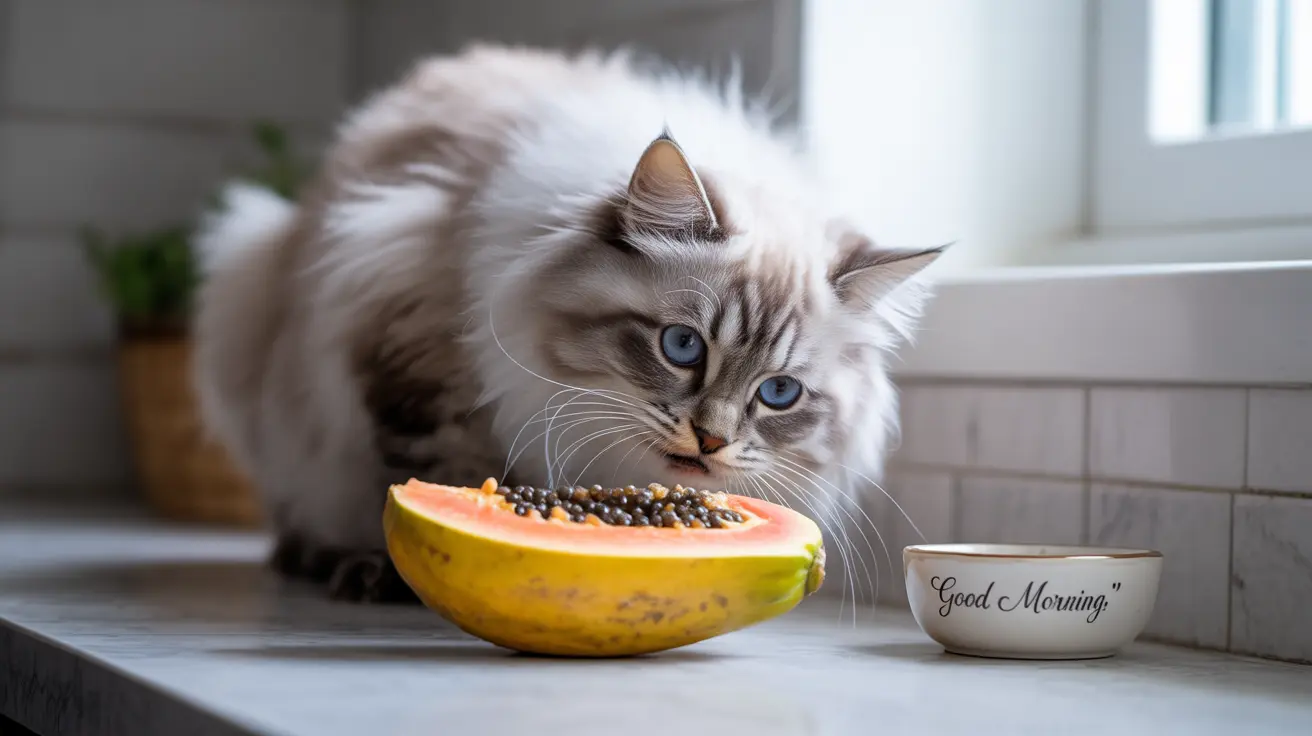If you're wondering whether cats can have papaya, the answer is yes - but with important caveats. While papaya is non-toxic to cats and safe in small amounts, it's not a necessary part of their diet. As obligate carnivores, cats have specific nutritional needs that are best met through meat-based foods.
In this comprehensive guide, we'll explore everything you need to know about feeding papaya to your feline friend, including safety considerations, potential benefits, and proper serving guidelines.
Understanding Cats' Dietary Needs
Before diving into the specifics of papaya consumption, it's essential to understand that cats are obligate carnivores. This means their bodies are designed to derive nutrition primarily from animal protein. Unlike humans or even dogs, cats don't require fruits or vegetables in their diet to maintain optimal health.
Safety of Papaya for Cats
Fresh, ripe papaya is generally safe for cats when offered in small amounts. However, certain precautions should be taken:
Safe Parts and Preparation
- Remove all seeds and skin
- Only offer ripe papaya
- Cut into small, manageable pieces
- Wash thoroughly before serving
Parts to Avoid
- Unripe papaya (contains irritating papain)
- Papaya seeds
- Dried papaya (too concentrated in sugars)
- Papaya skin
Potential Benefits and Risks
Benefits
While papaya isn't necessary for cats, it does contain some beneficial compounds:
- Natural enzymes that may aid digestion
- High water content for hydration
- Fiber content (in moderation)
Risks
Potential risks of feeding papaya to cats include:
- Digestive upset
- Diarrhea or vomiting if overfed
- Blood sugar spikes
- Possible allergic reactions
Proper Serving Guidelines
If you choose to offer papaya to your cat, follow these guidelines:
- Start with a tiny piece (size of a small blueberry)
- Monitor for any adverse reactions
- Limit treats to less than 10% of daily caloric intake
- Only offer occasionally, not as a regular treat
When to Avoid Papaya
Some cats should not be given papaya, including:
- Kittens
- Elderly cats
- Cats with digestive issues
- Diabetic cats
- Cats with known fruit sensitivities
Frequently Asked Questions
Is papaya safe for cats to eat, and can it cause any health issues?
Yes, papaya is safe for cats in small amounts. While not toxic, it can cause digestive issues if eaten in large quantities. Always introduce new foods gradually and monitor your cat's reaction.
How much papaya can I give my cat without risking digestive upset?
Offer no more than a small bite-sized piece (about the size of a blueberry) occasionally. Too much papaya can cause diarrhea or vomiting due to its fiber and sugar content.
What parts of the papaya should I remove before feeding it to my cat?
Remove all seeds, skin, and any unripe portions. Only offer the ripe, fleshy part of the fruit after it's been thoroughly washed and cut into small pieces.
Do cats get any nutritional benefits from eating papaya?
While papaya contains various nutrients, cats don't require these from fruit sources. Their nutritional needs are best met through a complete, balanced cat food with animal protein.
Can papaya be used as a regular treat in a cat's diet or should it be avoided?
Papaya should only be given as an occasional treat, not as a regular part of your cat's diet. Focus on meat-based treats and ensure treats make up less than 10% of their daily caloric intake.
Conclusion
While cats can safely eat small amounts of papaya, it's not a necessary addition to their diet. If you choose to offer papaya as a treat, do so sparingly and always monitor your cat for any adverse reactions. Remember that the best diet for your feline friend is one that focuses on high-quality, meat-based cat food.






